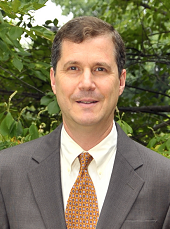ENCE 203 Computational Methods in Civil Engineering II
Spring 2002
Course Syllabus
==> Updated after 1st exam <==
Course Description
The goal of this course is to provide the student with a comprehensive review of mathematical methods faced by civil and environmental engineers. Examples of such methods include:
- finding the roots of equations
- solving multivariable linear and nonlinear equations
- optimization of engineering relationships
- fitting data to functional forms
- numerical differentiation and solving ordinary differential equations.
Each of these major topics is presented with applications in civil and environmental engineering and is accompanied with exercises using existing software packages such as:
- MATLAB
- Excel
- LINDO
Course Prerequisites
- Math 241 (Calculus III)
- ENES 220 (Mechanics of Materials), and
- permission of the department
Course Co-requisites
- Math 246 (Differential Equations for Scientists and Engineers)
Required Course Texts:
- "Numerical Methods for Engineers," Steven C. Chapra and Raymond P.
Canale, McGraw Hill (fourth edition)
Optional supplementary text:
- Operations Research Applications and Algorithms by Wayne L. Winston (4th edition)
Course Objective
Provide an introduction to the concepts behind systems engineering with applications in civil and environmental engineering.
Instructor
Dr. Steven A. Gabriel
Office EGR 1143
Telephone (301) 405-3242; Fax: (301) 405-2585
sgabriel@umd.edu
Course Location and Time:
Monday, Wednesday, Friday 10am-10:50am, EGR 3106
Course Assistant
Ms. Jifang Zhuang
tel: 301.405.0310
Eng. Lab. Building 1176
fzuang@hotmail.com
Office hours: Thursday 1-3pm, Friday 12:30-1:30pm
Grading
The overall course grade will be derived from three areas:
- Weekly homeworks: 10%
- Four in-class exams (each lasting one class period):
Take the highest three of them, each worth 20%=> 60% all together
(modified grading scheme was adopted after 1st in-class exam) - Final in-class exam covering entire course 30%
Course Policies
Students are encouraged to attend all lectures since the take-home exam and the homeworks will be closely related to material discussed in lectures.
It is assumed that students will complete the homeworks by themselves although casual discussion with other class members is allowed. Homeworks will generally be given out each week and due at the start of class one week later, no late homeworks will be accepted unless it’s a family or medical emergency.
The course is subject to the Code of Academic Integrity available on the web. The Code prohibits students from cheating on exams, plagiarizing papers, submitting the same paper for credit in two courses without authorization, buying papers, submitting fraudulent documents, and forging signatures.
The University has a legal obligation to provide appropriate accommodations for students with disabilities. Please inform Dr. Gabriel of any accommodations needed relative to disabilities. Also, University of Maryland policy states that students should not be penalized due to observances of their religious beliefs. Please inform Dr. Gabriel of such instances well in advance so that appropriate steps can be taken.
Short Bio on Dr. Gabriel
Academic Experience: Besides teaching at University of Maryland, Dr. Gabriel has held appointments in the Mathematical Sciences Department at The Johns Hopkins University, and in the Engineering Management and Systems Engineering Department at The George Washington University. In addition, he has served as a postdoctoral researcher in the Mathematics and Computer Science Division at Argonne National Laboratory.
Industry Experience: Dr. Gabriel has over 15 years of industry experience involving mathematical modeling of engineering-economic systems with applications in energy, transportation, service performance, and operations management. His specialties include optimization/equilibrium modeling, econometrics, decision support systems, and software development. His most recent industry experience includes 5 years as a Project Manager at ICF Consulting (www.icfconsulting.com) involving projects with their oil and gas group (www.icf-oilandgas.com) as well as their electrical power group.
![]()
ENCE203 home | Syllabus | Schedule & Homeworks | Downloads & Links
